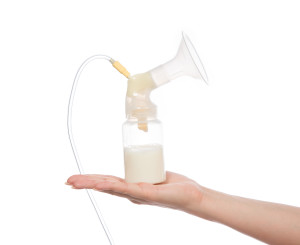Common Breastfeeding Dilemmas Solved
 Whether you are a first time mom, or are realizing that each child develops differently, a woman can experience difficulties breastfeeding at any time. Though breastfeeding is a natural process and is one that is best for both you and your baby, do not be frustrated or disappointed if it does not seem to come easily. What follows is a list of six of the most common breastfeeding issues and tips for overcoming each one.
Whether you are a first time mom, or are realizing that each child develops differently, a woman can experience difficulties breastfeeding at any time. Though breastfeeding is a natural process and is one that is best for both you and your baby, do not be frustrated or disappointed if it does not seem to come easily. What follows is a list of six of the most common breastfeeding issues and tips for overcoming each one.
Latching pain – Nipple discomfort is common when a woman first begins to breastfeed, especially for new mothers. If pain lasts more than the first minute after your baby latches, however, check your positioning. The optimal position is for the baby’s mouth to cover more of the areola below your nipple than above. When correctly positioned, baby’s chin and nose should touch your breast with his lips splayed out so that you cannot see your nipple.
Clogged ducts – The ducts of your nipples may clog if your breast milk is not completely draining after nursing. If your ducts are clogged, you may feel a hard lump on your breast, or your breast may be sore to the touch. If you begin to feel feverish and achy, you could have an infection, and should see your doctor. To help your body to clear the blockage, be sure to get enough rest, apply warm compresses to your breasts, and massage them to stimulate milk movement.
Thrush – This is a yeast infection in your baby’s mouth, which can spread to your breasts. Symptoms include itchiness, soreness, and rash. You will need an antifungal medication for both your nipples and your baby’s mouth to treat the infection.
Cracked nipples – If you find that your nipples are producing a bloody discharge during breastfeeding or pumping, know that it will not harm your baby. Cracked nipples could be caused by latching problems, improper breast pumping, dry skin, or thrush. To lower your risk for developing cracked nipples, check your baby’s positioning. You may also want to try breastfeeding more frequently but for shorter periods of time. Until your skin heals, treat your skin with clean water or an over-the-counter lanolin cream made especially for nursing mothers.
High milk supply – Also known as engorgement, having a high supply of breast milk could make it difficult for baby to latch to the breast. To help your baby latch, first try hand-expressing some milk to begin the flow and soften the breast. Breastfeeding more frequently may also help keep milk levels in check.
Mastitis – This bacterial infection in your breasts can be caused by cracked skin, clogged ducts, or engorgement. Mastitis causes pain and flu-like symptoms, including fever. Antibiotics will be needed to treat the infection. Also try applying a hot compress to the breast and empty your milk supply frequently.
If you experience any of these conditions or issues while breastfeeding, speak to your OBGYN. Breastfeeding should offer an important emotional bonding opportunity for you and your baby and should not be a cause of stress, discomfort, or health risk. For more on this topic, please visit the breastfeeding section on the patient education part of our website or check out these breastfeeding resources in Western New York.
More
